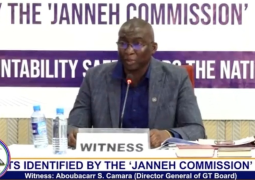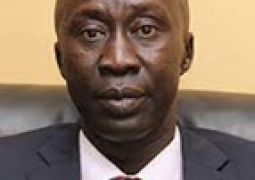
According to him, the partnership must focus on addressing the increasing levels of poverty, inequality and underdevelopment which for the longest, have been the biggest challenges facing the African continent.
As a representative of H.E. Adama Barrow, at the 15th Summit of the BRICS, Minister Joof made these remarks on 24th August, 2023 on the occasion of BRICS-Africa outreach and BRICS Plus Dialogue in Johannesburg, South Africa.
The Trade minister was accompanied by the Dr. Fatoumatta Jahumpa Ceesay, the Gambia’s ambassador to South Africa, Mr. Lamin Dampha, permanent secretary, Ministry of Trade and staff of the Gambian Embassy in South Africa.
On behalf of President Barrow, he thanked President Mr Ramaphosa of South Africa for inviting the Gambia to attend the BRICS- Africa Outreach and BRICS Plus Dialogue. According to him, the BRICS nations have become a strong engine of South-South Cooperation. “The most significant outcome of the emergence of BRICS is the shift they have brought to the balance of power in global affairs.
“The past decade saw a steady acceleration of commercial and strategic engagements between BRICS and Africa. The BRICS countries undoubtedly constitute Africa’s largest trading partners and are home to her newest investors. BRICS has nourished Africa’s economic emergence and elevated the continent’s contemporary global positioning,” he stated.
The Trade Minister affirmed that the BRICS-Africa partnership would be important for Africa’s journey towards structural transformation to archive green industrialization and to leapfrog towards cleaner technologies.
He observed that Africa is at a crossroads between fragile economic growth and a determination to race towards industrialization thus the continent’s structural transformation towards more value-added activities and modern jobs is often deflected by a dominant primary extraction sector which presents major challenges. Many of the ingredients needed for structural transformation, he said, will also be useful for fighting climate change and charting a course that is aligned with the continent’s aspiration for inclusive green growth.
Hence, he went on, BRICS currently plays an increasingly prominent role in world trade, investment, finance and governance. Globally, he revealed, they represent more than 40% of the population, 25% of GDP and 50% of the economic growth.
In conclusion, Minister noted that BRICS can have a significant impact on the African continent by offering opportunities and alternative pathways for aligning economic growth in adopting similar comprehensive innovation and approaches for economic transformation.




